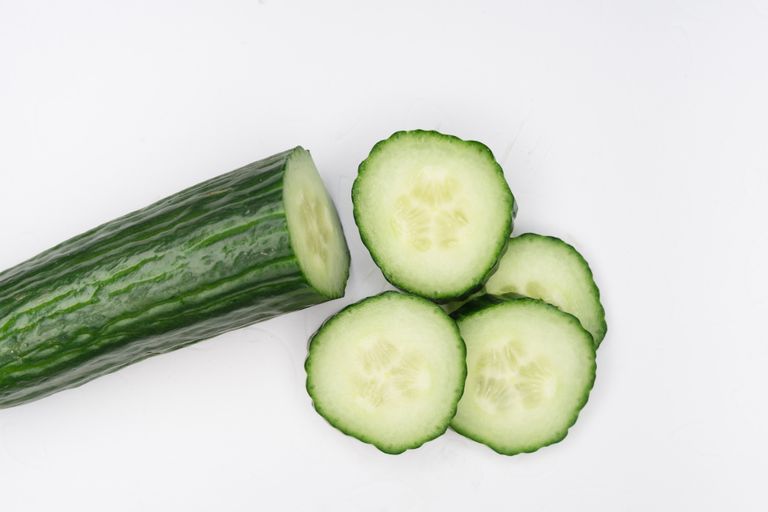
The cucumber is a vegetable that is highly adaptable and is most famous for being used to make dill pickles, but it is also in variety of dishes. Even cosmetics and spa services frequently incorporate it. But in addition to their numerous applications and crisp, fresh flavor, cucumbers are also rich in vitamins and minerals, which make them beneficial for your health to any diet.
The cucumber plant is a creeping vine that belongs to the Cucurbitaceae family, which also includes many melon varieties, gourds, pumpkin, zucchini, and butternut squash. It is an annual plant with hairy, dark green leaves and tendrils that perfectly arrange themselves for sunlight by looking for a support structure. Because of this, cucumber plants are usually planted on trellises or other frameworks of a like kind. Cucumbers do not withstand frost at all, and they thrive in warmer climates with lots of moisture.
Cucumbers have a reasonably high nutritional value considering their low calorie count, similar to celery and other vegetables with a high water content. Cucumbers include trace amounts of fat, 1 gram of protein, 2 grams of carbs, and 16 calories per cup. Cucumbers, both fresh and dehydrated, also offer several crucial nutrients:
Benefits of Consuming Cucumbers for Health
Cucumbers have fundamental nutritional value in addition to having phytochemical components that have been linked to a variety of health advantages. As an illustration, beta carotene, lignans, and flavonoids all have antioxidant effects. Numerous chemical processes take place daily all over the human body, and some of these processes might produce free radicals, which are tiny particles that have the ability to harm our tissues. In essence, antioxidants take up those particles and shield the body from harm. The following are a few health advantages linked to these and other cucumber components:
Lower cholesterol: Cucumbers have a large amount of water, while the remaining bulk is primarily made up of carbohydrates in the form of dietary fiber. In fact, this soluble fiber can bind to cholesterol in the small intestine, resulting in a general decrease in blood cholesterol levels. Lower cholesterol reduces the likelihood of artery plaque accumulation and subsequently lowers the risk of cardiovascular disease. Silica, a mineral that appears to lower the risk of arteries hardening, is also present in cucumbers.
Reduced blood pressure: A condition associated with high blood pressure may also be affected by the effect on cholesterol. Cucumbers also contain potassium, which binds with sodium in the bloodstream. When sodium levels fall, the arteries relax and blood pressure falls. Additionally, a lower risk of cardiovascular disease is linked to lower blood pressure.
Bone health: Vitamin K, which is present in cucumbers in the highest concentration, is essential for bone growth and maintenance. Additionally, a lack of vitamin K has been related to osteoporosis development and an increased risk of bone breakage.